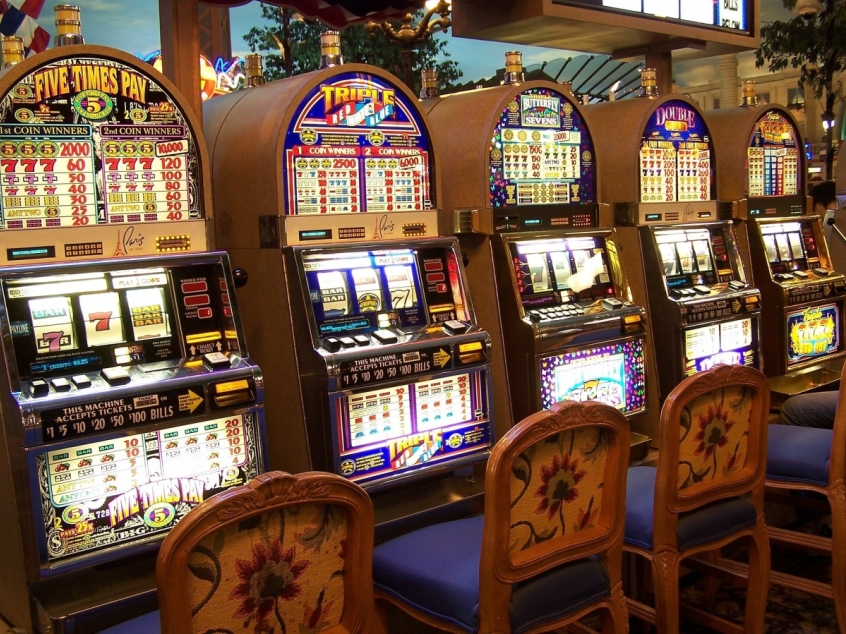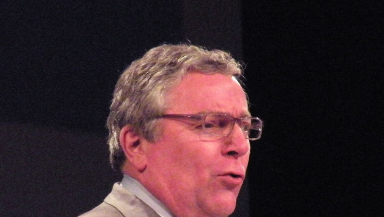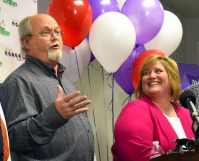When Ryan Myers left a betting shop in May 2014 he had just lost £500. On certain machines known as the 'crack-cocaine of gambling', this is possible in less than two minutes.
Later that day Myers hanged himself. In a Facebook post beforehand, he apologised for "letting people down" and said he "didn't mean to break anyone's heart".
This was not the first time Myers had lost hundreds of pounds in a matter of minutes. Several times he had lost his entire monthly salary and had spent thousands in betting shops and online gambling sites.

Fixed-odds betting terminals (FOBTs) are electronic roulette machines where players can bet on a variety of different games. There is a maximum stake of £100 every 20 seconds, meaning £300 can be lost in a single minute – more than a week's wages for many.
The combination of high speed play and high maximum stake is toxic. Anna Henry, a clinical psychologist and ex-gambling addict has said the machines are "designed to foster addiction". She continued: "These machines isolate the player so there is nothing to distract them from that screen. Its speed is to encourage frenzy and thus more spending."
It's easy to see why the gambling industry is so keen on them. For companies such as William Hill and Ladbrokes, each machine rakes in £1,000 every single week. There are nearly 35,000 FOBTs machines.
Christian campaigners and many others have long called for tighter restrictions. Lord Clement-Jones, a Liberal Democrat peer, has now teamed up with Christian public policy charity CARE to lead a drive to see the maximum stake cut drastically to £2.

In an interview with Christian Today he said the real problem lay in how "problem gamblers are managed".
"Until they lose their homes and jobs and families, even after concerns are raised, staff are told to carry on. I think they have a case to answer," he said.
CARE's CEO Nola Leach said: "The gambling industry makes millions from these machines and let's be honest, it's hardly in their interests to curb these profitable machines.
"That is why Lord Clement-Jones' attempt to reduce the maximum stake on FOBTs from £100 to just £2 through his Private Members Bill is so significant and necessary."
Clement-Jones is his party's spokesman on creative industries in the House of Lords, and his private members bill to be debated on Friday would fundamentally change the effect of FOBTs. But surprisingly, he does not join Leach and many others who have piled criticism on gambling companies.
He refused to endorse Henry's claim that FOBTs are designed to encourage addiction but admitted it was "strange" that betting shops are overwhelmingly concentrated in deprived areas. In the 55 poorest boroughs in the UK, high streets are lined with 2,691 betting shops. By comparison, there are just 1,258 shops in the 115 richest areas.
Clement-Jones stopped short of saying this was deliberate but many others have not given the betting industry such leeway. A study by Landman Economics concluded that "bookies are preying on the poor" but the Association for British Bookmakers (ABB) denied this was a deliberate policy. The chair of ABB said: "We do not target the poor."
"I try to look on the bright side and hope there is some accommodation to be reached," Clement-Jones told Christian Today.
"The industry tries to convince people they are doing the right thing and I can't see why they would not have an interest in helping problem gamblers.
"There is an argument that problem gamblers are their best customer but I can't believe for the reputation of the industry that is a sensible thing for them to believe.

"They would be much better off everyone being satisfied that everything is being done to avoid problem gambling."
But at this stage "the penny has not dropped" with government ministers, he added.
"You would have thought Conservative philosophy would be about protecting the vulnerable which is my motive. We have an obligation to help.
"In all sorts of ways we help people who can't help themselves. And something of this sort is crucial. FOBTs are devastating for families... It is broadly a compassionate case," he said.
"The ongoing damage to families, to communities is huge," he said. That's before related violence is considered, which is also "hugely important".
"Police were called out 11,000 times to 9,000 betting shops last year alone," said Clement-Jones. "FOBTs account for 97 per cent of all police call outs for gambling venues."
Bookmakers rarely press charges though because often the culprits are also regular customers.
"The other aspect is money laundering which is a big problem," Clement-Jones continued. Fraudsters can pay thousands of pounds in low-risk bets into the terminal in a matter of minutes. Hot-money can then be transferred into vouchers at a loss of just a few pence per pound and exchanged for cash at the shop's terminal.
But beyond the cases of crime, violence and family-breakdown, it is cases of suicide such as Myers' that are the biggest motivation for the Lib Dem peer. CARE helped draft Friday's bill, and Leach agreed that legislative action is vital to put an end to suicides that are "a result of these addictive machines".
She described the bill as an "historic attempt" to legislate against the damaging effects of FOBTs.
"We know that curbing the maximum stake will not solve the issue of problem gambling but it will undoubtedly help," she said.
"It is vital, therefore that the government throw their support behind this bill and give serious consideration to what action they might take to help problem gamblers across the UK."
















